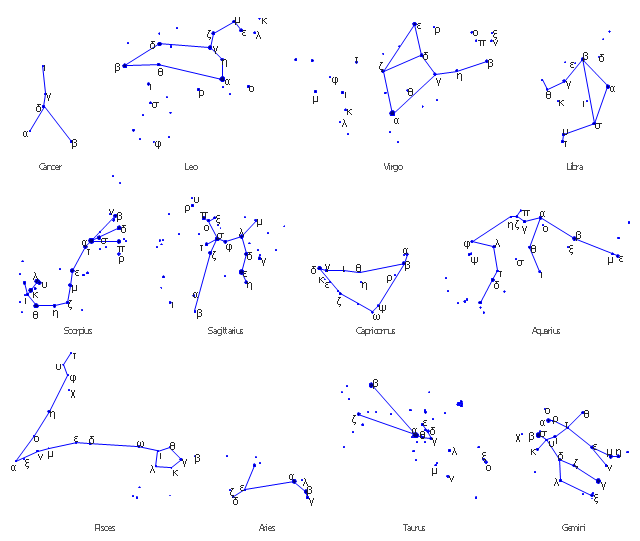HelpDesk
How to Draw a Сonstellation Сhart
Astronomic maps are used to locate stars, planets and other objects in the sky for a certain date, time and observing location. ConceptDraw Astronomy solution can be used as a tool for creating astronomy maps, charts and illustrations that contains astronomy symbols of constellations, galaxies, stars and planets. It allows you to draw the map of any constellation quickly and easily using the special templates and vector stencils libraries.The vector stencils library "Northern constellations" contains 6 star constellation maps for drawing astronomical diagrams.
"There are no markings on the night sky, though there exist many sky maps to aid stargazers in identifying constellations and other celestial objects. Constellations are prominent because their stars tend to be brighter than other nearby stars in the sky. Different cultures have created different groupings of constellations based on differing interpretations of the more-or-less random patterns of dots in the sky. Constellations were identified without regard to distance to each star, but instead as if they were all dots on a dome.
Orion is among the most prominent and recognizable constellations. The Big Dipper (which has a wide variety of other names) is helpful for navigation in the northern hemisphere because it points to Polaris, the north star.
The pole stars are special because they are approximately in line with the Earth's axis of rotation so they appear to stay in one place while the other stars rotate around them through the course of a night (or a year)." [Night sky. Wikipedia]
The example "Design elements - Northern constellations" was created using the ConceptDraw PRO diagramming and vector drawing software extended with the Astronomy solution from the Science and Education area of ConceptDraw Solution Park.
"There are no markings on the night sky, though there exist many sky maps to aid stargazers in identifying constellations and other celestial objects. Constellations are prominent because their stars tend to be brighter than other nearby stars in the sky. Different cultures have created different groupings of constellations based on differing interpretations of the more-or-less random patterns of dots in the sky. Constellations were identified without regard to distance to each star, but instead as if they were all dots on a dome.
Orion is among the most prominent and recognizable constellations. The Big Dipper (which has a wide variety of other names) is helpful for navigation in the northern hemisphere because it points to Polaris, the north star.
The pole stars are special because they are approximately in line with the Earth's axis of rotation so they appear to stay in one place while the other stars rotate around them through the course of a night (or a year)." [Night sky. Wikipedia]
The example "Design elements - Northern constellations" was created using the ConceptDraw PRO diagramming and vector drawing software extended with the Astronomy solution from the Science and Education area of ConceptDraw Solution Park.
The vector stencils library "Southern constellations" contains 22 star constellations maps for drawing astronomical diagrams.
"In modern astronomy, a constellation is an internationally defined area of the celestial sphere. These areas are grouped around asterisms (which themselves are generally referred to in non-technical language as "constellations"), which are patterns formed by prominent stars within apparent proximity to one another on Earth's night sky.
There are also numerous historical constellations not recognized by the IAU or constellations recognized in regional traditions of astronomy or astrology, such as Chinese, Hindu and Australian Aboriginal." [Constellation. Wikipedia]
The star charts example "Design elements - Southern constellations" was created using the ConceptDraw PRO diagramming and vector drawing software extended with the Astronomy solution from the Science and Education area of ConceptDraw Solution Park.
"In modern astronomy, a constellation is an internationally defined area of the celestial sphere. These areas are grouped around asterisms (which themselves are generally referred to in non-technical language as "constellations"), which are patterns formed by prominent stars within apparent proximity to one another on Earth's night sky.
There are also numerous historical constellations not recognized by the IAU or constellations recognized in regional traditions of astronomy or astrology, such as Chinese, Hindu and Australian Aboriginal." [Constellation. Wikipedia]
The star charts example "Design elements - Southern constellations" was created using the ConceptDraw PRO diagramming and vector drawing software extended with the Astronomy solution from the Science and Education area of ConceptDraw Solution Park.
The vector stencils library "Constellations except Zodiac, Northern and Southern" contains 47 star constellation maps.
"A star chart or star map is a map of the night sky. Astronomers divide these into grids to use them more easily. They are used to identify and locate astronomical objects such as stars, constellations and galaxies. They have been used for human navigation since time immemorial. Note that a star chart differs from an astronomical catalog, which is a listing or tabulation of astronomical objects for a particular purpose. A planisphere is a type of star chart." [Star chart. Wikipedia]
The star charts example "Design elements - Constellations except Zodiac, Northern and Southern" was created using the ConceptDraw PRO diagramming and vector drawing software extended with the Astronomy solution from the Science and Education area of ConceptDraw Solution Park.
"A star chart or star map is a map of the night sky. Astronomers divide these into grids to use them more easily. They are used to identify and locate astronomical objects such as stars, constellations and galaxies. They have been used for human navigation since time immemorial. Note that a star chart differs from an astronomical catalog, which is a listing or tabulation of astronomical objects for a particular purpose. A planisphere is a type of star chart." [Star chart. Wikipedia]
The star charts example "Design elements - Constellations except Zodiac, Northern and Southern" was created using the ConceptDraw PRO diagramming and vector drawing software extended with the Astronomy solution from the Science and Education area of ConceptDraw Solution Park.
The vector stencils library "Southern constellations" contains 22 icons of Southern constellations maps.
Use these star constellation charts for drawing astronomical diagrams and illustrations in ConceptDraw PRO diagramming and vector drawing software extended with the Astronomy solution from the Science and Education area in ConceptDraw Solution Park.
Use these star constellation charts for drawing astronomical diagrams and illustrations in ConceptDraw PRO diagramming and vector drawing software extended with the Astronomy solution from the Science and Education area in ConceptDraw Solution Park.
Design elements - Zodiac constellations
The vector stencils library "Zodiac constellations" contains 12 star constellation charts.
"In Western astrology, astrological signs are the twelve 30º sectors of the ecliptic, starting at the vernal equinox (one of the intersections of the ecliptic with the celestial equator), also known as the First Point of Aries. The order of the astrological signs is Aries, Taurus, Gemini, Cancer, Leo, Virgo, Libra, Scorpio, Sagittarius, Capricorn, Aquarius and Pisces." [Astrological sign. Wikipedia]
"Constellations.
The zodiacal signs are distinct from the constellations associated with them, not only because of their drifting apart due to the precession of equinoxes but also because the physical constellations take up varying widths of the ecliptic, so the sun is not in each constellation for the same amount of time. Thus, Virgo takes up five times as much ecliptic longitude as Scorpius. The zodiacal signs are an abstraction from the physical constellations, and each represent exactly one twelfth of the full circle, or the longitude traversed by the Sun in about 30.4 days.
Some "parazodiacal" constellations are also touched by the paths of the planets. The MUL.APIN lists Orion, Perseus, Auriga, and Andromeda. Furthermore, there are a number of constellations mythologically associated with the zodiacal ones : Piscis Austrinus, The Southern Fish, is attached to Aquarius. In classical maps, it swallows the stream poured out of Aquarius' pitcher, but perhaps it formerly just swam in it. Aquila, The Eagle, was possibly associated with the zodiac by virtue of its main star, Altair. Hydra in the Early Bronze Age marked the celestial equator and was associated with Leo, which is shown standing on the serpent on the Dendera zodiac. Corvus is the Crow or Raven mysteriously perched on the tail of Hydra.
Due to the constellation boundaries being redefined in 1930 by the International Astronomical Union, the path of the ecliptic now officially passes through thirteen constellations: the twelve traditional 'zodiac constellations' plus Ophiuchus, the bottom part of which interjects between Scorpio and Sagittarius. Ophiuchus is an anciently recognized constellation, catalogued along with many others in Ptolemy's Almagest, but not historically referred to as a zodiac constellation. The inaccurate description of Ophiuchus as a sign of the zodiac drew media attention in 1995, when the BBC Nine O'Clock News reported that "an extra sign of the zodiac has been announced by the Royal Astronomical Society". There had been no such announcement, and the report had merely sensationalized the 67-year-old 'news' of the IAU's decision to alter the number of designated ecliptic constellations." [Zodiac. Wikipedia]
The star maps example "Design elements - Zodiac constellations" was created using the ConceptDraw PRO diagramming and vector drawing software extended with the Astronomy solution from the Science and Education area of ConceptDraw Solution Park.
The vector stencils library "Zodiac constellations" contains 12 star constellation charts.
"In Western astrology, astrological signs are the twelve 30º sectors of the ecliptic, starting at the vernal equinox (one of the intersections of the ecliptic with the celestial equator), also known as the First Point of Aries. The order of the astrological signs is Aries, Taurus, Gemini, Cancer, Leo, Virgo, Libra, Scorpio, Sagittarius, Capricorn, Aquarius and Pisces." [Astrological sign. Wikipedia]
"Constellations.
The zodiacal signs are distinct from the constellations associated with them, not only because of their drifting apart due to the precession of equinoxes but also because the physical constellations take up varying widths of the ecliptic, so the sun is not in each constellation for the same amount of time. Thus, Virgo takes up five times as much ecliptic longitude as Scorpius. The zodiacal signs are an abstraction from the physical constellations, and each represent exactly one twelfth of the full circle, or the longitude traversed by the Sun in about 30.4 days.
Some "parazodiacal" constellations are also touched by the paths of the planets. The MUL.APIN lists Orion, Perseus, Auriga, and Andromeda. Furthermore, there are a number of constellations mythologically associated with the zodiacal ones : Piscis Austrinus, The Southern Fish, is attached to Aquarius. In classical maps, it swallows the stream poured out of Aquarius' pitcher, but perhaps it formerly just swam in it. Aquila, The Eagle, was possibly associated with the zodiac by virtue of its main star, Altair. Hydra in the Early Bronze Age marked the celestial equator and was associated with Leo, which is shown standing on the serpent on the Dendera zodiac. Corvus is the Crow or Raven mysteriously perched on the tail of Hydra.
Due to the constellation boundaries being redefined in 1930 by the International Astronomical Union, the path of the ecliptic now officially passes through thirteen constellations: the twelve traditional 'zodiac constellations' plus Ophiuchus, the bottom part of which interjects between Scorpio and Sagittarius. Ophiuchus is an anciently recognized constellation, catalogued along with many others in Ptolemy's Almagest, but not historically referred to as a zodiac constellation. The inaccurate description of Ophiuchus as a sign of the zodiac drew media attention in 1995, when the BBC Nine O'Clock News reported that "an extra sign of the zodiac has been announced by the Royal Astronomical Society". There had been no such announcement, and the report had merely sensationalized the 67-year-old 'news' of the IAU's decision to alter the number of designated ecliptic constellations." [Zodiac. Wikipedia]
The star maps example "Design elements - Zodiac constellations" was created using the ConceptDraw PRO diagramming and vector drawing software extended with the Astronomy solution from the Science and Education area of ConceptDraw Solution Park.
- Easy To Draw Constellations
- Easy Star Constellations To Draw
- How to Draw a Сonstellation Сhart | Constellation Chart | Illustration ...
- Easy Constellations Zodiac To Draw
- Easy To Draw Constellations Map
- How To Draw Star Constellations
- How To Draw The Northern Star
- Draw Map Of The Stars A Constellations
- Drawing Simple Constellations
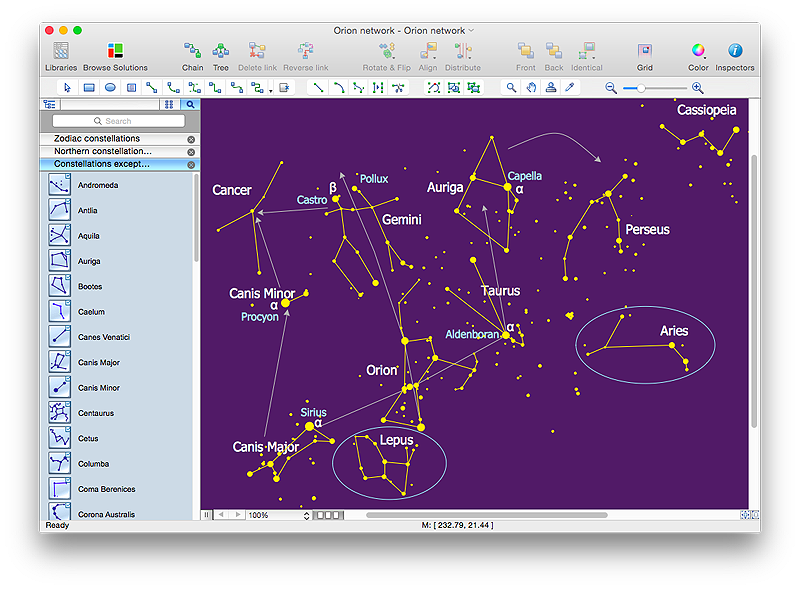
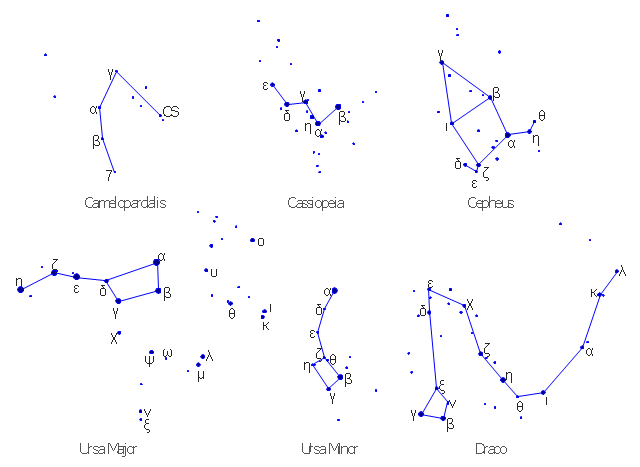
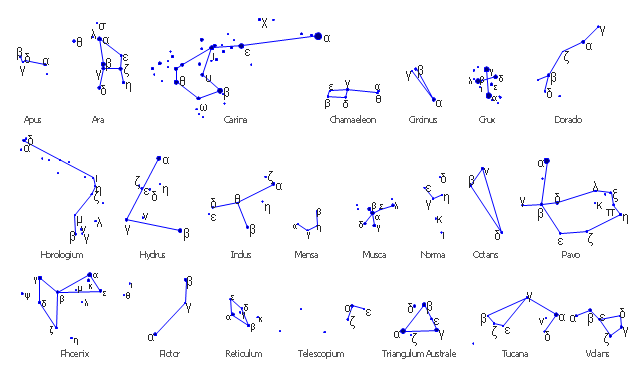
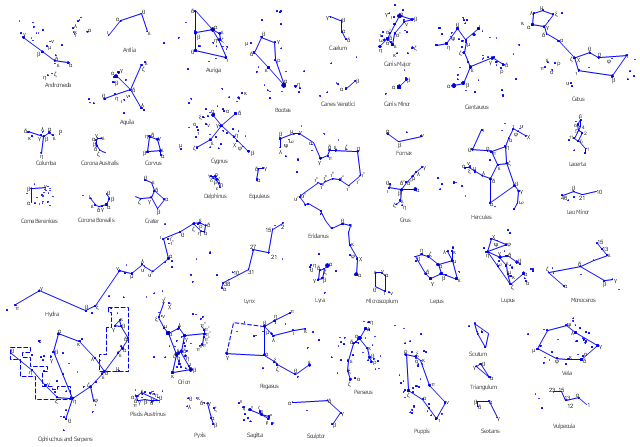
---vector-stencils-library.png--diagram-flowchart-example.png)
---vector-stencils-library.png--diagram-flowchart-example.png)
---vector-stencils-library.png--diagram-flowchart-example.png)
---vector-stencils-library.png--diagram-flowchart-example.png)
---vector-stencils-library.png--diagram-flowchart-example.png)
---vector-stencils-library.png--diagram-flowchart-example.png)
---vector-stencils-library.png--diagram-flowchart-example.png)
---vector-stencils-library.png--diagram-flowchart-example.png)
---vector-stencils-library.png--diagram-flowchart-example.png)
---vector-stencils-library.png--diagram-flowchart-example.png)
---vector-stencils-library.png--diagram-flowchart-example.png)
---vector-stencils-library.png--diagram-flowchart-example.png)
---vector-stencils-library.png--diagram-flowchart-example.png)
---vector-stencils-library.png--diagram-flowchart-example.png)
---vector-stencils-library.png--diagram-flowchart-example.png)
---vector-stencils-library.png--diagram-flowchart-example.png)
---vector-stencils-library.png--diagram-flowchart-example.png)
---vector-stencils-library.png--diagram-flowchart-example.png)
---vector-stencils-library.png--diagram-flowchart-example.png)
---vector-stencils-library.png--diagram-flowchart-example.png)
---vector-stencils-library.png--diagram-flowchart-example.png)
---vector-stencils-library.png--diagram-flowchart-example.png)
